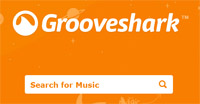TorrentFreak Email Update |
- Filesharing Admin Arrested for Selling User Database
- Censoring The Pirate Bay is Futile, ISPs Reveal
- Court Recognizes DMCA Safe Harbor in Universal v Grooveshark Lawsuit
| Filesharing Admin Arrested for Selling User Database Posted: 12 Jul 2012 04:11 AM PDT
Together the sites had more than 300,000 users and carried 31,402 links to movies, music, TV shows, software and games indexed on BitTorrent, cyberlockers and eDonkey networks. This week the Italian fiscal police concluded their investigation into the 49-year-old operator of the sites, known online under the pseudonym "Tex Willer." The operator was arrested and is suspected of facilitating copyright infringement and several related crimes. In addition, five others have been charged with multiple offenses including tax fraud and counterfeiting. According to the authorities, Willer also earned 37,000 euros by making the site’s user database available to advertisers. Emails and IP-addresses were sold without permission of the site’s members, which is a violation of privacy law. The operator is also suspected of creating fake invoices worth 100,000 euros, and failing to pay 83,000 euros in taxes. In total, Willer made a profit of 580,000 euros since he began his activities in 2007. The authorities claim that the value of the copyrighted works that were made available amounts to 32 million euros. For these copyright infringements Willer is facing hefty fines. Enzo Mazza, president of Italian anti-piracy group FIMI, told TorrentFreak that this “is a very important case.” “For the first time the Fiscal police did a very sophisticated analysis of the economics behind an infringing site using the standard procedure they are using for the money laundering investigation. We applaud the investigation of the fiscal police and the action taken by the public prosecutor from Salerno,” Mazza says. While the sites have been shutdown, FIMI says an investigation into the advertisers who collaborated with Willer is ongoing. Source: Filesharing Admin Arrested for Selling User Database |
| Censoring The Pirate Bay is Futile, ISPs Reveal Posted: 11 Jul 2012 11:25 AM PDT
Courts all around the world have ordered Internet providers to block subscriber access to the torrent site, and more are expected to follow. The idea behind these blockades is that they will help to decrease online piracy. However, more and more evidence is appearing that suggests that this aim is not being fulfilled. In fact, the blocking attempts may actually be having the opposite effect. Last week, Dutch Internet provider XS4All revealed that after they started to enforce the Pirate Bay blockade, BitTorrent traffic went up instead of down. The ISP looked at the traffic on its network and found that over the past year traffic increased on ports that are commonly used for BitTorrent. Today, two other major ISPs in the Netherlands – KPN and UPC – have made statements suggesting that censoring The Pirate Bay does little to stop BitTorrent traffic. KPN saw no traffic decrease at all after the blockade was implemented. UPC initially observed a small decline in download traffic, but this went back to normal shortly after. While the data says little about the legality of the files being downloaded, it’s a clear indication that most BitTorrent users don’t quit their habit despite the apparent obstacles. A third ISP, Ziggo, says it is keeping its download data confidential until their appeal against the blockade has been heard in court. However, the provider did point to earlier findings by researchers from the University of Amsterdam, which showed that the blockade has had no impact on the number of BitTorrent pirates. In this study the researchers compared the number of Dutch participants in popular BitTorrent swarms, before and after The Pirate Bay was blocked, and found no difference. The results are not really unexpected, as there are countless other ways to download the torrents available on The Pirate Bay. There are also countless other BitTorrent sites out there plus hundreds of proxy websites that allow blocked subscribers to access The Pirate Bay. One of the most popular proxy websites for The Pirate Bay is operated by the UK Pirate Party. And according to Party leader Loz Kaye the censorship efforts are not only ineffective, but they are also engaging the public in the politics surrounding these issues. “The Pirate Party’s website is now in the top 500 websites in the UK – above any other political party. If the aim was to change people’s behavior, the most noticeable change we have seen is an upsurge in interest in our kind of politics. I doubt this was the BPI’s intention,” Kaye writes in The Guardian today. Considering the above, the entertainment industry might be better off pumping money into business models that give customers what they want, legally. The censorship route doesn’t seem to work out for now. Source: Censoring The Pirate Bay is Futile, ISPs Reveal |
| Court Recognizes DMCA Safe Harbor in Universal v Grooveshark Lawsuit Posted: 11 Jul 2012 05:29 AM PDT
Again, just like YouTube, Grooveshark says that if any rightsholder has a problem with any content being made available, upon correct notification and in line with relevant law it will remove access to said content. This is how the DMCA works – as long as the correct procedures are followed it exists to stop service providers being held responsible for the infringements of others. However, in January 2010, Universal Music Group filed a lawsuit in a New York court in which it claimed that Grooveshark had copies of its music in its archives. But there was an interesting twist – Universal said that since the music came from the company’s pre-1972 back catalog and was therefore covered by New York state law and not the federal Copyright Act, Grooveshark would not be able to rely on the safe harbor provisions of the DMCA. After a summary of the DMCA’s requirements including the responsibilities of both copyright holders and service providers and what the latter must do to receive safe harbor protection, yesterday the Court reached its decision. “There is no textual, or other reason, to think that Congress intended to limit that distribution of responsibilities to only post-1972 recordings,” Judge Barbara R. Kapnick wrote, effectively neutralizing the first element of Universal’s unconventional attack on Grooveshark. In a response to the 2010 lawsuit, Grooveshark parent company Escape Media had also filed several other counterclaims, not only on the issue of the DMCA, but also concerning competition. Escape stated that it is a competitor to Universal and that the music company had engaged in an unlawful anti-competitive campaign “to exploit its sizeable market power by coercing third party business entities into refusing to deal with Escape” and Escape had suffered significant damages as a result. Escape said that Universal coerced two of its advertising partners – Hewlett Packard and INgrooves – into breaching their contracts and terminating their relationships with Escape. The deal with HP is reported as being worth $325,000. Escape also claim that Universal had their Grooveshark app pulled from the Apple App Store. Universal tried to have these and other counterclaims dismissed. They succeeded on one point concerning antitrust, with the Judge noting that those laws were enacted for the “protection of competition, not competitors” and that injury to a competitor [Grooveshark] is not “injury to competition as a whole.” The end result though, with the lion’s share of the counterclaims against Universal allowed to stand, is great news for Grooveshark. A source close to the company told TorrentFreak they are “thrilled” at the prospect of counterclaims worth “tens of millions of dollars, if not more” going through. Who knows, maybe they might prove to be a good point of negotiation in the other case the companies are still fighting? Source: Court Recognizes DMCA Safe Harbor in Universal v Grooveshark Lawsuit |
| You are subscribed to email updates from TorrentFreak To stop receiving these emails, you may unsubscribe now. | Email delivery powered by Google |
| Google Inc., 20 West Kinzie, Chicago IL USA 60610 | |


 Last November, Italian police (Guardia di Finanza)
Last November, Italian police (Guardia di Finanza)  The Pirate Bay is arguably the most censored website on the Internet.
The Pirate Bay is arguably the most censored website on the Internet. Streaming music service
Streaming music service
No comments:
Post a Comment